David Toko – Hawkes Bay Business Connector / Local Government
David Toko is a dynamic Business Connector at the Hawkes Bay Chamber of Commerce. David’s career journey is a compelling narrative of perseverance, adaptability, and the power of community. Born in Otago and raised in Cromwell, David’s path has been shaped by diverse experiences and a relentless drive to support others.
In this interview, David opens up about his early career struggles and triumphs. From working long, gruelling shifts in the printing industry to seizing a life-changing opportunity with Harvey Norman, David’s story is one of resilience and transformation. His candid reflections on the challenges he faced, including a significant setback in Palmerston North, reveal a man who has learned to turn adversity into opportunity.
David’s role as a Business Connector involves meeting with small and medium enterprise owners, understanding their aspirations, and helping them achieve success. His ability to empathize and connect with people has been a cornerstone of his career. He shares valuable insights into the importance of mentorship, the necessity of asking for help, and the impact of community support.
One of David’s defining moments came from handling a difficult customer situation with grace and finding innovative solutions to business problems. His journey underscores the importance of backing oneself, staying persistent, and continuously learning from both successes and failures.
David’s advice for aspiring business professionals is rooted in his own experiences: believe in yourself, leverage your skills, and don’t be afraid to seek support. His story is a testament to the power of resilience and the importance of community in achieving professional success.
Join us as David Toko shares his inspiring journey, offering practical advice and heartfelt reflections that are sure to resonate with anyone looking to make their mark in the chamber of commerce.
The six pou of Mata Ārahi Manomano drive the questions we have used to profile Māori & Pacific role models, like Anthony, in the Service sector.
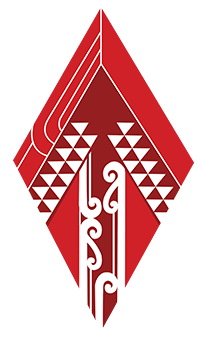
|

|
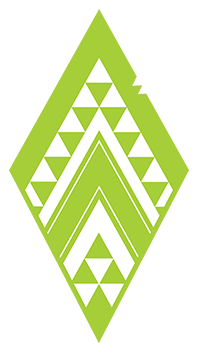
|
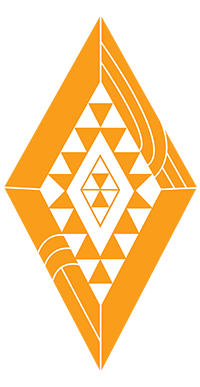
|
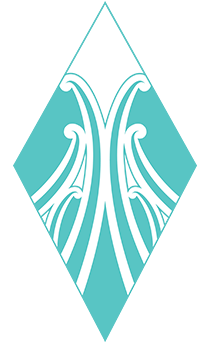
|
|

Representing the levels and forms of aroha that can be found throughout our lives across our many communities. We acknowledge the wide range of obstacles and the journey it takes to overcoming everything that stands in our way to expressing aroha within.
Maitaki – Kia ora koutou
My name’s David Toko. I grew up in Murihiku, born in Otago, and raised in Cromwell. I’m the Business Connector with Hawkes Bay Chamber of Commerce. I sit down with owners of small and medium enterprises, typically with under 50 employees, to identify their aspirations and what success looks like for them. Through the Chamber of Commerce, I assist and support them.
I left school in ’93 and didn’t find my calling until 2001. I honestly had no aspirations and didn’t know what I was doing. I was an 18-year-old father who needed a job. I played a lot of football and got a connection there. Somebody said, “Mate, you need a job.” He dragged me along to his work, and I ended up being a printer.
After a couple of years there, I started learning more about myself, my strengths, and the skills that make me a great Business Connector. It’s the ability to listen to what people have to say and take it on board without talking much; having the ability to say, “If I don’t have the answer, I’ll go out and find it.” That’s probably why I’m so successful at what I’m doing now.

Seeking guidance from our kaitiaki Hiwa-i-te-rangi, we take a journey through our different aspirations, goals and dreams. This tohu acknowledges hard work, wisdom, the reach of ones goals and the desire that comes from this mahi.
When I was a printer, I met up with an old school friend who was working for Coca-Cola as a regional sales rep, and he said, “You should give us a go.” I was getting sick of being a printer, so when he spoke to me, I said, “Man, why not?”
I learned a lot through Coca-Cola, and then I spent another couple of months in a sales rep role. That’s when I met my wife. We moved to Whakatane, and I became a furniture coordinator for Warehouse Stationery.
That’s when I started to really enjoy interacting with people, which is strange for somebody who doesn’t like being around people too much. I just wanted to help people, looking to support and solve problems—all that rolls into working in retail.
It was there I was shoulder-tapped by a man named Robert from Harvey Norman, who was opening a Whakatane store. That’s really when my career kicked off.
After about nine months, they saw potential in me. They said, “Would you want to be a proprietor one day?” I was like, “Yeah, what do I have to do?” They said, “Literally just keep doing what you’re doing now, and we’ll keep monitoring. We have what we call a proprietor training program.” That’s where I guess my business acumen started. So, I began there and moved down to Hastings.

With adventure comes challenges as well as obstacles to overcome. We stand proud as we overcome these obstacles. This tohu draws inspiration from the Niho Taniwha and Aramoana patterns. We acknowledge reaching our destination and preparing ourselves for the many new adventures ahead.
I got a promotion and worked in the television and speakers department and then whiteware. Then I got given a shot to take over part of North Harvey Norman Electrical. I’m pretty sure it was 2014 when I sat back and went, “Holy shit. I’m running a business!”
In 2018, I finished up with Harvey Norman. In that time I was a furniture proprietor in Hastings and Dunedin. Each store was successful.
I haven’t gone to university. All I’ve done is a diploma and an NZIM management certificate. I just got to know more about myself in this space. That’s where I found my strengths and weaknesses.
A lot of my strengths were the ability to see where things were going wrong and fixing them, making them more profitable than they were. A lot of stores I went into were losing money, and that was kind of like my superpower, I guess —the ability to fix things quickly and get them turning around.
I used to go into some stores, and they’d be going, “Oh my god, it’s the Grim Reaper.” But I was always there to help him. I just said, “Hey mate, we need to have a look at things and see how we can turn them around.”

These patterns represent bravery and being strong in the face of adversity. We strive to be persistent and positively challenge anything that threatens to alter, restrict, and put a barrier in the way of our desired pathway.
There was one moment we had a really bad customer walk into our store. She came in going, “Where’s the fing manager? I wanna fing rip his head off.”
Long story short, she was getting really bad service with our furniture team, and Sam Hyde, a proprietor from Lower Hutt, just gave me a look. I walked up to her and said, “what’s wrong? What can I do to make it right?” And she goes, “I just want to deal with somebody that’s going to help me and not bug me around.” I said, “So if we could find somebody that can answer your questions, would that make you happy?” And she said yes.
Sam said to me the next morning, “There was one lesson you were always going to have to learn, and that’s how to deal with customers.” He loved how I took her aside into another room, deescalating the situation. That was the customer service she was after. She really just wanted a little bit of a discount.
That’s, I guess, my defining moment. Some people have bad days, and sometimes avoiding bad situations is not the way to tackle it. It’s just being straight up, just saying, “How can we help?”

Here we are drawing inspiration from the Pūhoro pattern. The pūhoro is used here to represent the strength, speed and agility needed to move forward and accomplish ones goals.
Before I got into this role, I spent five years working in QA—quoting, tendering, project management for a roofing/plumbing business. I took all my customer service skills and added quoting and tendering work. You have to have faith in what you’re doing and back yourself.
That’s my biggest weakness. Growing up, I wasn’t backed and wasn’t given any confidence. It was usually the complete opposite; being told I’d never amount to anything. So, it’s just about backing yourself.
In my line of work now, everything I’ve done has come back to supporting those who want to start businesses, upskill if they’ve already got a business, upskill their people, train them, recruit the right people, and increase their profits.
Everything I’ve done in my life has culminated to this point right now as a Business Connector. I can take all those skills and share what I still call dark arts. There are things that you’ll never learn unless you do the hard yards because these are things that books can’t teach you.
I just believe that if you’re here to help and you’ve got the skills to help somebody, just do it. I’ve never cared about any outcomes apart from seeing a business flourish. It’s a weird one.
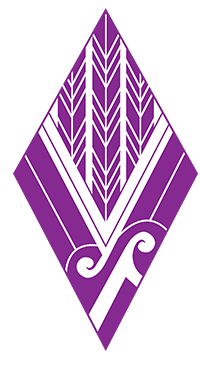
Success, best mentioned in the whakatauki “Tūwhitia te hopo, mairangatia te angitū!” Feel the fear and do it anyway!
The biggest lesson was with my first store in Palmerston North, which wasn’t successful. I lasted just over a year. There was no specific reason; just a relationship breakdown between myself and my general manager.
I was let go from my proprietorship in electrical, and I had to pick myself up again. I had a whole family relying on me. My oldest daughter was heading off to her first year at university. That was a point where I said, “Man, I just failed,” and trying to pick myself up again was hard.
But within three months, we moved back to Hawkes Bay. I had a good friend on the furniture side of Harvey Norman. They kind of got me back in the door again. Within six months, I was back as a proprietor again. I was lucky and back on the road again, and I didn’t let that opportunity slip. So I learned from my mistakes.
The biggest lesson I learned is don’t do it on your own. That’s always been a weakness—thinking I can do all of this and don’t need help from anybody. But I’ve changed that now. I also say, if you need help, you need to ask.